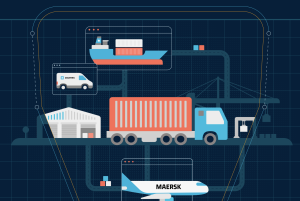Research indicates a strong link between owner-manager education, access to finance and small business growth
The growth of small businesses in South Africa is severely affected by the institutional environment in which they operate. In this series of articles, Cornelia Olivier, Head of Sourcing: Corporate Services, Absa, looks at South Africa’s institutional environment.
In part 2, Olivier discusses how business growth links with education and formal credit extension to small businesses.
Access to finance
75% of all applications for bank credit by new SMEs are rejected.
A 2013 survey of employers and the self-employed (by Stats SA) found that 53.8% of those surveyed used money earned from previous, or present wage employment as a source of funding. Of the informal businesses surveyed that did borrow money, 96.8% received those loans from family.
In a 2010 Finmark Trust study, almost 14% of SMME owner-managers quoted access to finance and the cost of finance as obstacles to growth of their small businesses. In a follow-up Finmark Trust study in 2016, only 2% of SMMEs confirmed they were able to access bank loans or formal credit.
This was consistent with the study by Fatoki and Odeyemi (1) who put forward that about 75% of all applications for bank credit by new SMEs are rejected.
Not offered in early stages
Access to finance is a direct enabler of growth in small businesses because it allows for experimentation and the pursuit of new opportunities (2).
However, a World Bank study in 2001 indicated that 90% of small enterprises that were surveyed, listed unavailable credit as a major constraint to new investment.
This was confirmed in the South African context by SEDA in 2016, who found that banks tend to lend to small businesses in their later stages of development and are less likely to lend to start-up SMMEs.
The leverage effect of education on growth
Some fundamentals of education’s economic effects
Education is a factor for growth. Schumpeter asserted that the key factor for growth is knowledge because its application leads to economic disruption necessary for growth (3).
Fatoki (2) expanded on this, stating that knowledge is a factor necessary for growth, as it represents the application of human capital. The incorporation of knowledge into economic activities is required as a basis for production and thus economic growth (4).
Not enough support to SMEs
The OECD Economic Survey for South Africa in 2015 indicated that South African institutions do not provide enough support to SMEs through the improvement of basic and skills-enhancing education. Research by SEDA (2016) further shows that one major constraint to the growth of small business in South Africa is an inadequately educated workforce.
The interesting observation in the access to funding studies discussed earlier is that education and experience have a leverage effect on growth, as long as there is an ambition to grow and there is access to finance. Firms where the owner displays growth ambition and has access to formal credit, experience faster growth rates if the owner is also educated (5)
The figure below illustrates the leverage effect of education on small business growth.
Small business determinants of access to debt
There are five main determinants of access to debt in the small business context:
• Managerial competence
• Collateral
• Business information
• Networking
• Location (1)
The distinguishing feature of a high-growth small business is the education, training and experience of the owner-manager (6). Owner-manager schooling is related to the likelihood of getting loans (7), and here in South Africa, education of the owner-manager is also a factor in access to credit for small businesses.
To find out more about the study conducted, please contact the author on LinkedIn.
Join Cornelia at SmartProcurementWorld’s Cape Town conference
References
(1) Fatoki, O.O. & Odeyemi, A. (2010). Which new small and medium enterprises in South Africa have access to bank credit? International Journal of Business Management, 5(10, pp. 128-136.
(2) Fatoki, O.O. (2011). The impact of human, social and financial capital on the performance of small and medium-sized enterprises (SMEs) in South Africa. Journal of Social Sciences, 29(3), pp. 193-204.
(3) King, R.G. & Levine, R. (1993). Finance and Growth: Schumpeter Might Be Right. The Quarterly Journal of Economics, 108(3), pp. 717-737.
(4) Booysen, I., Molotja, N. & Phiri, M.Z. (2013). Innovation in high-technology SMMEs: the case of the new media sector in Cape Town. Urban Forum, 24, pp. 289-306.
(5) Wiklund, J. & Shepherd, D. (2003). Aspiring for, and achieving growth: the moderating role of resources and opportunities. Journal of Management Studies, 40(8), pp. 1919-1941.
(6) Rogerson, C.M. (2008). Tracking SMME development in South Africa: issues of finance, training and the regulatory environment. Urban Forum, 19, pp. 61-81.
(7) Van der Sluis, J., Van Praag, M. & Vijverberg, W. (2005). Entrepreneurship selection and performance: a meta-analysis of the impact of education in developing economies. The World Bank Economic Review, 19 (2), pp. 225-261.

























